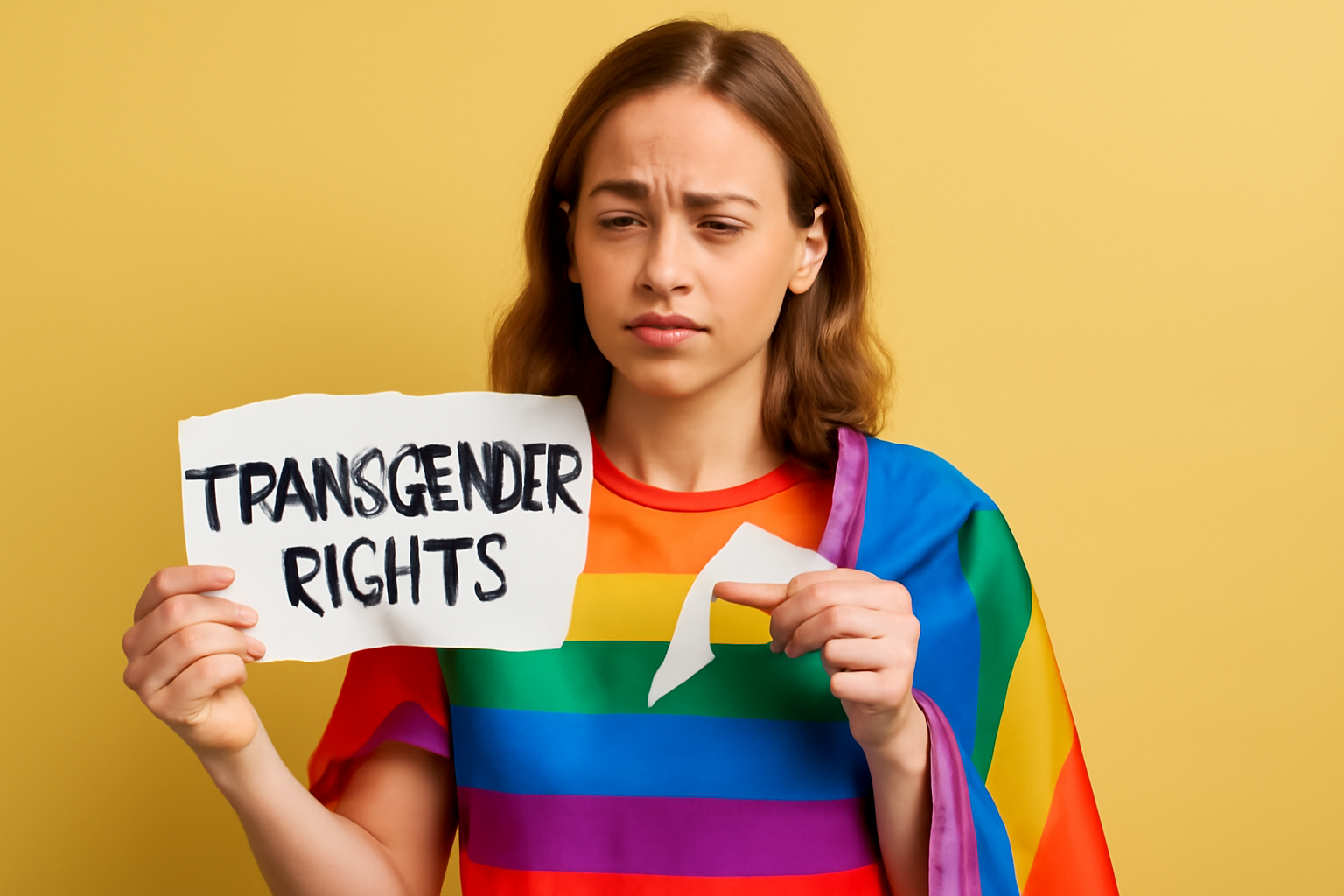
Government Reverses Plans to Simplify Legal Gender Change Process
The UK government has reportedly reversed its plans to simplify the process for transgender individuals to legally change their gender, stepping back from a significant commitment made in their electoral manifesto.
Their manifesto, released before last summer's decisive general election victory, included a pledge to "modernise, simplify and reform" the Gender Recognition Act (GRA). The proposed reforms aimed to make the process of obtaining a Gender Recognition Certificate (GRC) less cumbersome for transgender people. Currently, to acquire a GRC, transgender individuals in the UK must be at least 18 years old and provide a medical report along with evidence of living in their gender for a minimum of two years.
Transgender people are required to supply medical evidence from two doctors, or from a doctor and a clinical psychologist. This documentation must detail a diagnosis of gender dysphoria and note any gender-affirming treatment received, such as hormone therapy or surgeries.
The requirement to prove living in their gender for two years requires "no other specific requirements" but should include documents with gender markers and titles from various points over the two years, with approximately one piece of evidence for every three months.
The manifesto had promised a new process that would "remove indignities for trans people who deserve recognition and acceptance," while retaining the necessity for a gender dysphoria diagnosis from a specialist doctor, to ensure access to necessary healthcare pathways. Although this commitment represented a shift from earlier Labour promises of implementing self-identification, it was still seen as progress by many advocates.
However, according to recent reports, the government has decided to abandon these plans. Sources close to the administration have indicated that the promise to ease the legal process for transgender people has been shelved. Insiders have reportedly described the gender issue as a "can of worms," suggesting that the government wishes to avoid the controversy.
Officials from the Department for Education, which is responsible for overseeing equality matters, have not denied the claims, leading to further speculation about the government's intentions.
In response to the allegations, a government spokesperson stated, "We remain committed to modernising the gender recognition process while upholding the Equality Act and its provisions on single-sex exceptions. The government is committed to ensuring respect and dignity for trans people."
Despite these assurances, if the government does indeed step back from its pledges, it would not be the first time Labour has fallen short on promises to the trans community. Shortly after gaining power, they upheld the Conservative ban on the sale and supply of puberty blockers, which was enacted following the release of the Cass Report.
Health Secretary Wes Streeting has previously expressed regret for saying "trans women are women," and has subsequently defended the controversial emergency ban on puberty blockers, which has drawn significant criticism from LGBTQ+ advocates.
Prime Minister Keir Starmer has a checkered history on transgender rights. Last year, when asked if it was correct for gender-critical MP Rosie Duffield to state that "women have a cervix," Starmer responded, "Biologically, she of course is right about that."
In 2023, Starmer faced backlash for comments perceived as throwing trans individuals "under the bus" during an interview where he remarked, "For 99.9 percent of women, it is completely biological... and, of course, they haven't got a penis."
Furthermore, he has been criticized for using the term "adult female" to describe women, a phrase often employed by groups opposed to trans rights.
Before the election, Starmer pledged a "reset moment" on divisive discourse, but this offer has been met with skepticism from members of the transgender community. Many remain cautious about whether genuine progress will be made in creating a more inclusive and understanding dialogue around gender identity.
The abandonment of the promised reforms to the GRA represents a significant setback for transgender rights in the UK. Advocates continue to call for a more straightforward and compassionate process for legal gender recognition, emphasizing the importance of self-identification and the removal of unnecessary medical gatekeeping.
As the debate continues, the transgender community and its allies remain vigilant, urging the government to prioritize respect, dignity, and equality for all individuals, regardless of gender identity.
Related Posts
Triumphant Trans Woman Wins Legal Battle and Inspires Others to Stand Up for Their Rights
Breaking new ground: a landmark victory in transgender rights After battling in courtrooms and enduring endless challenges, Diana Portillo, a transgender woman, has secured a monumental victory in her decade-long fight against workplace discrimination. The result? Nearly $1 million awarded in a historic settlement. But this isn't just a win on paper—it represents a powerful precedent in combati [...]
Pride Month in Latin America: Protests and Demands for Equality
**Celebrating Pride and advocating LGBTQ+ rights in Latin America** Pride Month in Latin America was a lively mix where celebration met activism. Communities united, not just throwing a party but making a stand—demanding equality and pushing governments toward better protection and rights recognition. Throughout Latin America, pride events erupted in marches and cultural displays, each with a c [...]
Transgender Erasure Actions Implemented by National Park Service
```html Trump administration's impact on national park service and transgender recognition The Trump administration made notable moves in undermining transgender representation, which included directing agencies like National Park Service not include "T" and "Q" when they refered “LGBTQ” in any official communication. This move seems part a broader plan by this administration aimed at reducin [...]